Br – Sha’ul Promises Not to Harm David First Samuel 26: 13-25
Sha’ul Promises Not to Harm David
First Samuel 26: 13-25
Sha’ul promises not to harm David DIG: What was the penalty for Abner not protecting Sha’ul? Why didn’t David call Sha’ul “my father” as he had done before? What did David mean when he said that people had said to him, “Go, serve other gods?” What was David’s point when he compared himself to a flea and a partridge? Was Sha’ul sincere in his confession? Did it matter? In what way were Sha’ul’s words, God’s words concerning David?
REFLECT: How can we tell the difference between true repentance and mere emotion? Why do we need to know this? In what area of your life do you need to be comforted with this reminder: The LORD rewards righteousness and faithfulness? Where is your faithfulness being tested? Describe one of your “desert experiences” from the past. Are you in one right now? What do you hope to learn from this one?
1012 BC
Throughout First Samuel, we have seen David contrasted to King Sha’ul. From the start, David was intended to be ADONAI’s replacement for the apostate leader (First Samuel 13:14). In this chapter, we see them together for the last time . . . Sha’ul declining into his depravity and David growing in God’s grace. On these respective courses, time has only served to widen the gap between them. Imagine how great the gulf is when advanced into eternity! The real difference, of course, was their respective relationship with the LORD, which set them on their different paths. Our standing with ADONAI is what matters to each of us. A relatively moral person who is a stranger to God’s grace is bound to move in a godless direction, if only in his or her own heart. However, a relatively immoral person who comes to faith in Christ, is bound to become more and more holy over time.160
David’s Message to Abner: Then David and his nephew crossed over to the other side and stood on top the hill opposite the hill of Hakilah some distance away (to see link click Bq – Do Not Lay a Hand on ADONAI’s Anointed). There was a wide space between them so David could not be easily caught. He called out to the army to waken them, and specifically called Abner, Sha’ul’s general (and thus by association to the king himself), by name, taunting him, “Aren’t you going to answer me, Abner?” After waking up, Abner replied: Who are you who calls to the king? Abner’s snooty response is only an invitation for David’s sharp and baiting speech. In a few words, David managed to honor Sha’ul, to take Abner seriously, and yet to ridicule him.
David said: You’re a man, aren’t you? And who is like you in Isra’el? Why didn’t you guard your lord the king? Someone came to destroy your lord the king. What you have done is not good. As surely as ADONAI lives, you and your men must die, because you did not guard your master, the LORD’s anointed. Look around you. Where are the king’s spear and water jug that were near his head (First Samuel 26:13-16)? The absence of the spear and water jug was evidence enough that someone had indeed been close enough to the king to have killed him. So Abner, whose responsibility it was to protect the king, was guilty. Abner could not know, of course, that his failure was due to the deep supernatural sleep sent by YHVH (First Samuel 26:12b CJB). ADONAI was with David, and Abner was sure to fail. Sha’ul’s general stood indicted, and was reduced to silence.161
David’s Message to Sha’ul: David was careful not to humiliate Sha’ul in the presence of his men, although Sha’ul couldn’t easily escape the embarrassment of the situation. He recognized David’s voice because it was still too dark to recognize his face and figure and said: Is that your voice, David my son? But David didn’t call him “my father” as he had done before (First Samuel 24:11). He replied: Yes it is, my lord the king. And he added, “Why is my lord pursuing his servant? What have I done, and what wrong am I guilty of? Now let my lord the king listen to his servant’s words. Had David’s suffering come from the hand of God or the hands of men? If ADONAI has incited you against me, then may He accept an offering. If, however, people have done it, may they be cursed before the LORD! If David had broken the commandments of the Torah, then he was willing to bring a sacrifice and have his sins forgiven. But if Sha’ul was treating David like a criminal because of the lies his people had told him, then they would have to pay for their sins.
They had driven David from the Land, the very inheritance that YHVH had given his family, and if David moved to other lands, how could he worship ADONAI away from the priesthood and the ark of the Covenant?162 It was as if Sha’ul was saying: Go, serve other gods. Consequently, David pleaded: Now do not let my blood fall to the ground (to die a violent death) far from the presence of ADONAI outside the Land, away from the Sh’khinah glory. The rabbis teach that the God of Isra’el could only be properly worshiped in the Land of Isra’el; hence, banishment was equivalent to his being told to go and serve other gods. The king of Isra’el has come out to look for a single flea – as one hunts a partridge in the mountains. This was an undignified pursuit, hardly worthy of the dignity of the king of Isra’el (First Samuel 26:17-20). The species of partridge common in the Holy Land tries to save itself by running, rather than by flight, and is continuously chased until, when fatigued, it is killed by sticks thrown along the ground.

Sha’ul’s Promise: Once again Sha’ul lapsed into one of his sentimental moods and confessed: I have sinned. Come back to the palace of Gibeah, David my son. Because you considered my life precious today, I will not try to harm you again. Sha’ul admitted that he, like his alter ego Nabal (see Bm – Nabal Offends David), had acted like a fool and had been terribly wrong (First Samuel 26:21). In this contrite state of mind, Sha’ul wanted David to return, however David had learned his lesson – Sha’ul couldn’t be trusted under any circumstances. Therefore, he submitted Sha’ul to the indignity of having to send a soldier to fetch his spear.
David’s Response: David offered to return Sha’ul’s spear, the symbol of death, but not the water jug, the symbol of life.163 “Here’s the king’s spear,” David answered. “Let one of your young men come over and get it. YHVH rewards everyone for their righteousness and faithfulness. David ignored Sha’ul’s invitation to return to the palace. He had no reason to trust him. God would judge Sha’ul. The LORD delivered you into my hands today, but I would not lay a hand on ADONAI’s anointed. As surely as I valued your life today, so may YHVH value my life and deliver me from all trouble (First Samuel 26:22-24). David had spared Sha’ul’s life, and he knew that Ha’Shem would reward him for what he had done. ADONAI, who dispenses judgment to the peoples, vindicate me, ADONAI, according to my righteousness and as my integrity deserves (Psalm 7:8 CJB). At this point David didn’t need anything from Sha’ul, only from YHVH. Sha’ul, in fact, had become irrelevant.164
The Final Separation of Sha’ul and David: Sha’ul here is a pathetic figure as he pronounced a blessing on David and foresaw his many successes, which foreshadowed Sha’ul’s own death. Then Sha’ul, resigned to his destiny, said to David, “May you be blessed of God and protected by Him; David my son, you will do great things and surely triumph.” So David went on his way, and Sha’ul returned home (First Samuel 26:25). Nothing had changed, Sha’ul headed off to ultimate disgrace and death, and David to ultimate glory and victory. The two would never see each other again. David was about 28 years old at that time. One day he would look back on those difficult years and see in his painful experiences only the goodness and mercy of the LORD when he wrote: Goodness and mercy will pursue me all the days of my life; and I will live in the house of ADONAI forever (Psalm 23:6).



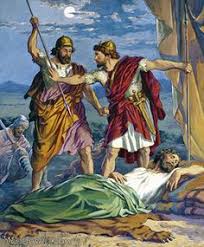

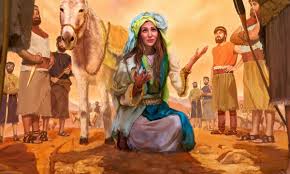
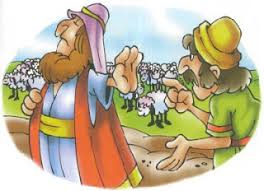

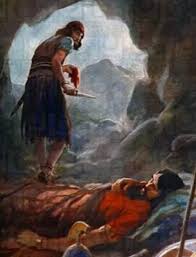
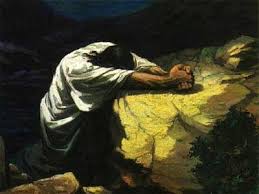

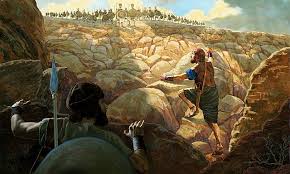
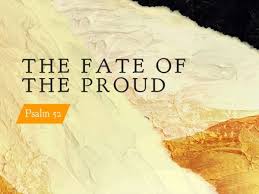
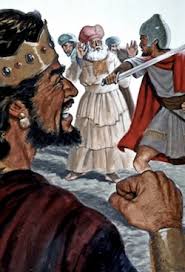

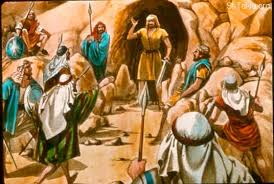
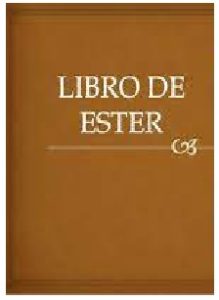 Todos amamos una buena historia. Si esta habla de la propia familia, la vemos con buenos ojos, tanto mejor si da evidencia de que ADONAI trabaja en nuestras vidas para asegurar el futuro. Todo esto es verdad en el libro de Ester. Aunque no se hace mención de la providencia del SEÑOR, es obvio que está orquestando todo detrás de las escenas. La reversión dramática de un destino horrendo que parecía destinado a aniquilar a toda la raza judía impresionó tanto al autor humano que escribió una historia para todas las edades. Sigue siendo la historia favorita número uno entre las familias judías y, como costumbre tradicional, se lee todos los años en Purim. Pero, sin embargo, plantea muchas preguntas. ¿Dios todavía tiene el control? ¿Todavía está Él activo en las vidas de Su pueblo y está elaborando Su plan, o ha abandonado a Isra’el? El narrador de esta historia épica responde esas preguntas para su propia generación.
Todos amamos una buena historia. Si esta habla de la propia familia, la vemos con buenos ojos, tanto mejor si da evidencia de que ADONAI trabaja en nuestras vidas para asegurar el futuro. Todo esto es verdad en el libro de Ester. Aunque no se hace mención de la providencia del SEÑOR, es obvio que está orquestando todo detrás de las escenas. La reversión dramática de un destino horrendo que parecía destinado a aniquilar a toda la raza judía impresionó tanto al autor humano que escribió una historia para todas las edades. Sigue siendo la historia favorita número uno entre las familias judías y, como costumbre tradicional, se lee todos los años en Purim. Pero, sin embargo, plantea muchas preguntas. ¿Dios todavía tiene el control? ¿Todavía está Él activo en las vidas de Su pueblo y está elaborando Su plan, o ha abandonado a Isra’el? El narrador de esta historia épica responde esas preguntas para su propia generación.